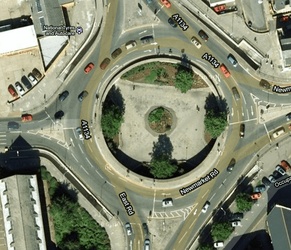I wish I'd written this.This is a very parochial, reductionist view, that frames the problem as "how to accommodate cycling". If you step back a bit, you will see that the problem is not about cycling, it is about the consequences of adopting a planning philosophy that gives primacy to the requirement for motor vehicles to get to places, and everything else must fit around that. The problems that cyclists face constitute one part of those consequences, which also include difficulties for pedestrians, pollution, noise, etc. Any action that just attempts to solve one bit of the problem by making special provision for that bit (i.e. how to accommodate cyclists), is unlikely to succeed. It is the root cause that needs to be addressed, which is the belief that the provision of fast, convenient motor vehicle access outweighs everything else. Only a holistic approach, that gets us away from this belief, is likely to succeed, and it will probably be cheaper to do anyway than making special provision for each thing that isn't a motor vehicle.
And it's only a matter of time before I do..........

